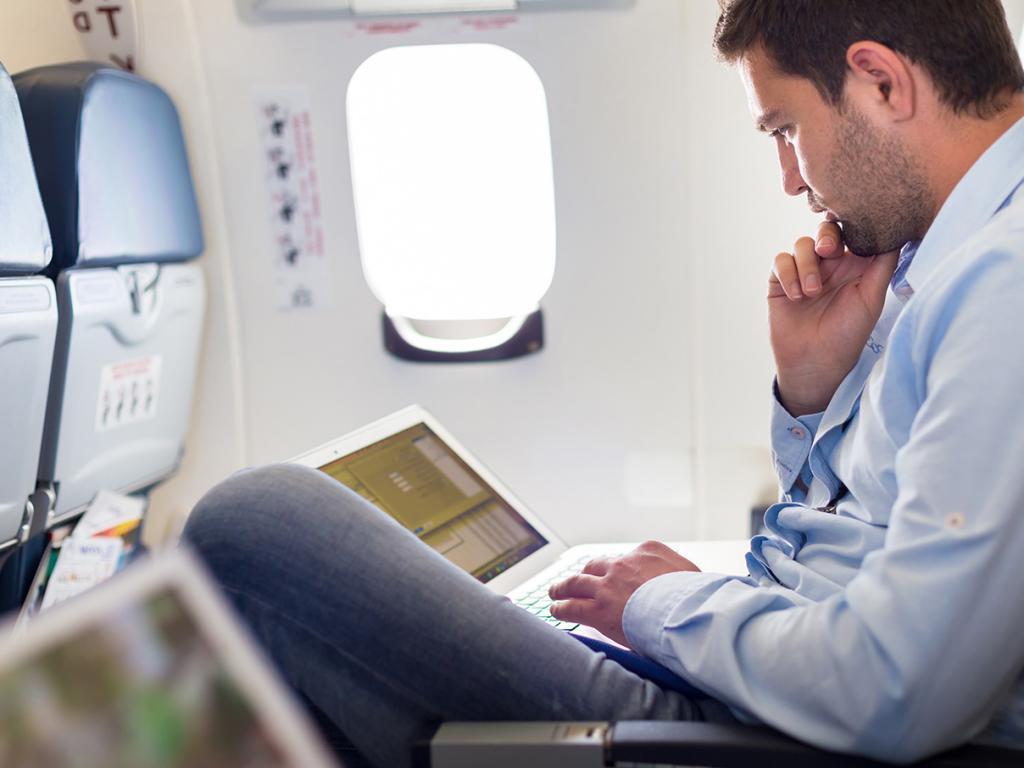
As 2018 looms, we predict continued growth for business travel as South African companies of all sizes are forced to look across borders for investment opportunities to counter the weak growth opportunities locally. In particular, Africa will become a very exciting space with a renewed focus on open skies, more airline routes and increasing visa openness.
Based on the current political, economic and travel environment, a customer- and traveller-centric approach through collaboration with travel policies and investments in Africa holds the key to long-term sustainability, better business performance and greater ROI from business travel.
Here’s how we predict travel management will evolve in 2018. Watch this space…
Seize Opportunities for Growth in 2018

We anticipate that despite the sluggish economic growth expected in South Africa in 2018, the demand for outbound business travel will experience moderate growth as South African companies expanding their trade with global counterparts, not only in Africa but elsewhere in the world.
“To facilitate this growth, improved air access, visa openness and favourable trade conditions will become even more critical in 2018,” says Oz Desai, Corporate Traveller South Africa GM.
“There is a global economic super-storm brewing and this will force companies to seek future growth markets. Africa and India are the only two areas that have the demographics to deliver this, and while local politics ensures the SA economy will be weak for a while, companies need to investigate other options,” explains Professor Bezuidenhout, Associate Professor: School of Economics North West University.
According to the African Development Bank, the free movement of people is a cornerstone of regional integration. When business people move more easily, because of liberal visa policies and better connectivity, they bring higher levels of investment, fresh skills and expand the range of goods and services on offer.
“In Africa, where much of South Africa’s outbound business travel occurs, there have been some improvements to visa policies. We also expect visa openness to continue improving in 2018 as the continent seeks to move towards the African Union’s goal of being a continent of seamless borders,” says Desai.
The benefits of a connected continent are clear, yet much remains to be done for governments and businesses to leverage the opportunities that come with Open Skies.
In Africa, Open Skies means the creation of thousands of jobs and billions of dollars of revenue for the continent. It means making travel on the continent more affordable, boosting business growth and increasing opportunities for innovation.
According to Chris Zweigenthal, CEO Airline Association of Southern Africa, the SAATM is a means to re-energise the Yamassoukro Declaration. Although only 23 states have signed a Solemn Commitment to the liberalisation of their skies, this is more than half of the countries on the African continent.
In late January or early February 2018, African heads of state will meet and this will be one of the issues that they discuss. This is the time for African states to put their money where their mouth is and actually go for it.
It is an opportune time for us to get the process of liberalizing the African skies going. It will mean unlimited third and fourth freedom rights and a fairly liberal exchange of fifth freedom rights. But everybody has to commit to it for it to work.
If SAATM were implemented by deadline (2018), the number of direct air connections within Africa would increase substantially. Travellers would not be forced to select flights that have long travel times or several stopovers, saving them time, and airfares would be reduced by up to 35%, according to IATA.
A drop in airfares in 2018 will be good news for South African companies that are setting their sights on African expansion. Airfares for travel on the continent have been exponentially high when compared to other destinations.
According to Corporate Traveller statistics, a return trip from OR Tambo International Airport in Johannesburg to Gaborone in Botswana costs as much as R4,41 per kilometre, to Maputo as much as R3,40 and Lusaka R2,21. Whereas a flight from Johannesburg to Perth, Australia, would cost only R0,88 per kilometre, Paris only R0,61 and New York R0,52. The costs to fly within Africa are significantly higher than flying overseas.
The introduction of Low Cost Carriers on African routes also bodes well for outbound business travellers. Fastjet, for example, has been making its mark on the African map this year with newly announced flights to Mozambique, Tanzania and Zimbabwe. The airline reportedly also has plans for expansion into South Africa. FastJet’s Zambia-South Africa service, for example, has seen a 38% rise in passengers and a 38% reduction in fares.
For 2018, we expect that further low-cost carrier routes will be introduced by the likes of FastJet, better airport facilities will be made available to business travellers and more countries will pledge their commitment to opening their skies, which in turn will drive airfares down and increase productivity as business travellers are increasingly able to fly direct routes within Africa.
The Death of the Corporate Contract

Although it tends to be advisable to negotiate rates with providers based on volumes, this is not the case for 2018. There can be some important pitfalls to getting locked into a client-specific negotiated contract.
Firstly, it’s important to keep in mind that the minimum spend is often quite high. For SAA, the minimum spend per annum to qualify for negotiated rates is R1m excluding airport taxes. If companies miss this target, the deal will fall away next year.
Another consideration is your rate discounts will only apply to the higher airfares, and not on the cheaper rates. This could mean that your company is still paying substantially more than the cheapest available ticket price.
Airlines aren’t the only travel suppliers seeking to maximise their yields and change the way in which they present their services and products in 2018. Hotels are jumping on the bandwagon, using sophisticated revenue management systems to automate their yield management and increase their profitability.
“The way most hotels manage their yield these days means that a static corporate rate is not a great option as you cannot take advantage of lower last-minute prices,” says Desai. He explains that The Royal Palm in Dubai, for example, changes their rates up to 14 times per day depending on the market they are targeting and the availability of rooms. Being locked into one static rate means corporates could miss out on great savings. This trend is predicted to continue through 2018, with more hotels to follow suit.
Partnering with a TMC like Corporate Traveller, that has volume deals in place thanks to its buying power, can help companies achieve the best savings. By partnering with a TMC, companies not only have no targets to worry about, they also have the flexibility of choosing the best option at time of quotation. Corporate Traveller also has access to a number of accommodation platforms where hotels push last-minute deals and managed yield rates. This, in turn, gives clients access to cheaper hotel and guest house prices.
Data Security and Data Privacy

Data can be a dangerous thing, however. In the realms of cyber-security, identity theft and data privacy, data in the wrong hands can be devastating for both the business traveller and the corporate. And the incidences are increasing.
In the first half of 2017, over six billion records were exposed through data breaches, and at that point, the number was already higher than the previous all-time high at the end of 2017, according to a report from Risk Based Security.
Hacking, skimming and phishing attacks account for the leading cause of data breach incidents and its set to continue to be a threat in 2018.
Credit card data breaches meanwhile are a further area of concern and have been for many years. In travel, we see the International Air Transport Association introduce a requirement for TMCs that they be PCI DSS-compliant by 1 March 2018 or lose their IATA license.
PCI DSS is a set of industry standards that measure the security of businesses that accept, process, store and transmit credit card information. These standards apply to any TMC that accepts credit cards and by complying the company is recognised as less likely to suffer data breaches that could expose customers to identity theft.
“Airlines, in particular, are a top target for criminals using stolen card details. Last year, Interpol ran a special airline day where flights on which a suspected fraudulent transaction was used were checked. What was most interesting was that most of the 193 individuals who were arrested were not just travelling using a ticket bought with fraudulent card details. Rather, they were using this as part of their criminal activities – trafficking drugs, people, and stolen or illegal property,” says PCI Security Standards Council’s Mark Meissner.
And after years of talking about it, the Protection of Personal Information Act (POPI) finally comes to life in 2018, with the appointment of an Information Regulator in September 2017. Companies have until September 2018 to get their POPI house in order, which requires them to protect personal information and regulate how this information is processed.
The Act applies to every business that processes (collects, disseminates or merges) personal information (passport numbers, names, phone numbers, race, gender, etc.) and special personal information of the ‘data subject’ (client) ‘entered into a record’ (such as e-mails and hard copies) by or for a responsible person (the travel agent) who determines the purpose and means of such processing (to book flights, hotels, car rental).
TMCs are among those companies that need to be compliant and as a customer, the business traveller should and will have access to the company’s privacy policy and terms and conditions which outline the way in which their personal information is stored.
Businesses in the travel industry, both large and small, need to be on guard and make payment security a priority in 2018.
Blended Technology

Use technology to automate simpler transactions so you can free up staff to provide more strategic support. It can eliminate human error and prevent fraud and abuse of your travel programme. These are all ways in which technology could deliver savings for you in 2018.
We anticipate more corporates will adopt a mobile strategy within their travel programme to keep their business travellers engaged and following policy.
“Companies need to make their mobile travel programme even more easy to follow than using outside tools if they want to encourage compliance among business travellers,” explains Oz Desai, Corporate Traveller South Africa GM.
In 2018, your travel programme should include mobile and corporates will need to communicate that strategy so business travellers know what apps they can use, how they communicate and its functionality, making it easier for them to conduct business travel, for example submitting expenses while they’re on the road, etc.
“Business travellers are going to be connected to technology, whether you provide them with the tools to help them connect, or not. That’s why we believe in providing travellers with all their travel information while they’re on the go, it ensures their experience is positive so that they’re more relaxed, in control and focused on their destinations, not to mention empowered to make changes themselves,” says Desai.
To work effectively for your business and enable business productivity in 2018, it needs to be simple and implemented only when it’s right. Engaging with a TMC that offers a blended approach to your technology is key.
Conclusion
A traveller-centric over cost-centric approach in 2018 will deliver long-term savings for South African corporates with the acknowledgement that business travel can be a major catalyst to their growth.
Improved air access, greater visa openness, better travel technology and more strategic travel management will improve the ROI that companies have been seeing from their business travel.
Contact Corporate Traveller to review your travel programme, maximise your travel savings and enhance business productivity to ensure you get 2018 off to a flying start.